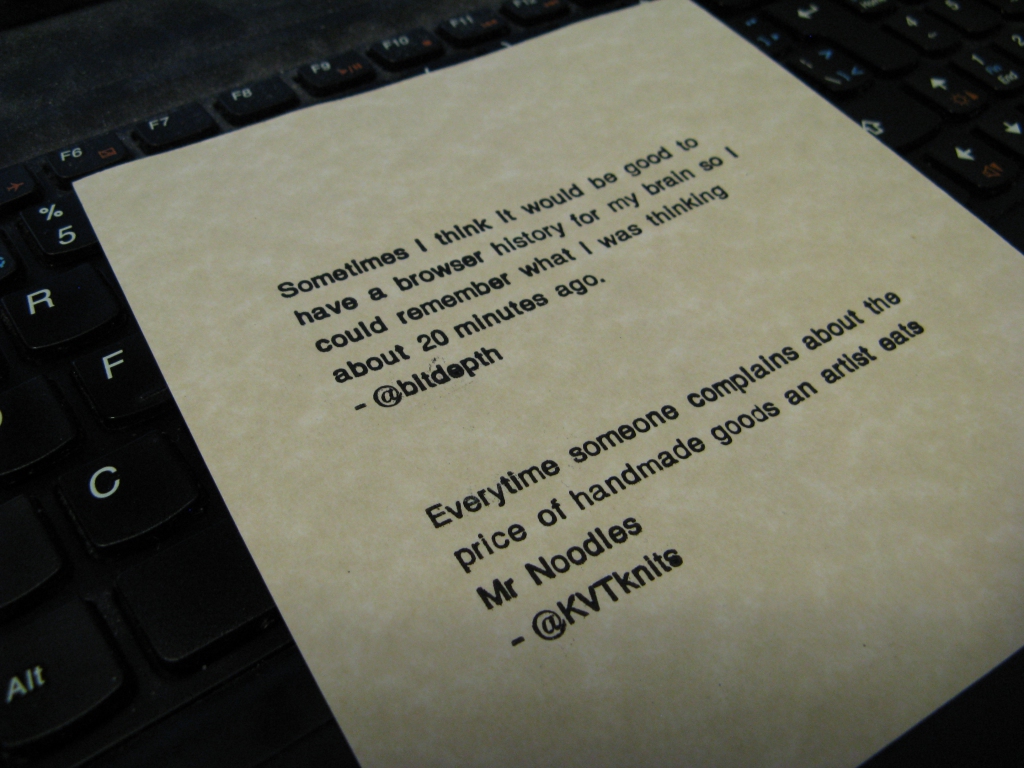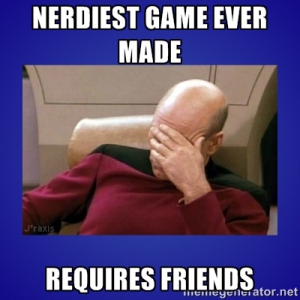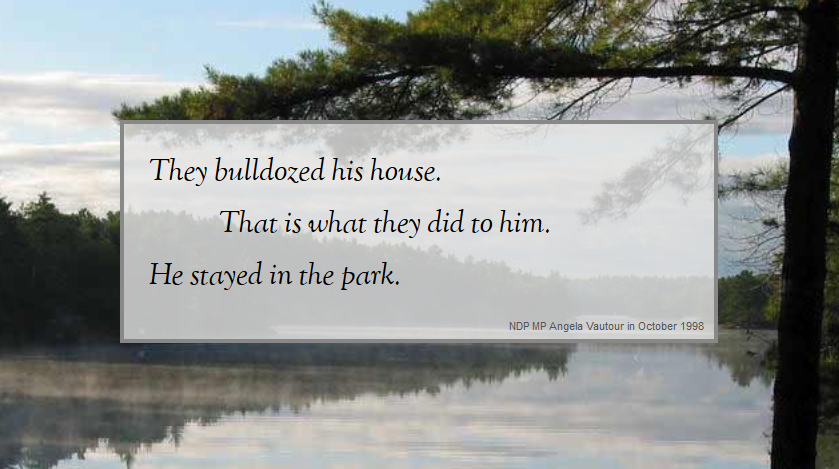This past Sunday there was an unconference at the Halifax Central Library: Podcamp Halifax 2015. Here are some tidbits and reflections based on my notes.1 General thoughts at the bottom.
These are the sessions I attended:
- Text and Context
- Community Building: Dungeons and Dragons Style
- Painting WITH Numbers: An Intro to Data Analysis
- Open House, Rusty Doors
- High Performance JavaScript
- Codcamp Halifax 2015
* * *
9:15 – 9:55 Text and Context
Chris Campbell & Katherine Victoria Taylor
“Words are powerful – they connect us and have power. Join Katherine Victoria Taylor and Chris Campbell as they take you on a journey from movable type to Twitter. Does it make a difference if the words are glowing on a screen or printed on a page? Explore the power of words and the context where they live and breathe in an interactive session with more than 140 characters.”
I like Twitter and I’m interested in hearing about old books, so this was my first choice.

And we got a souvenir: the presenters’ hand-typeset Tweets (Tweets by Chris Campbell, Katherine Victoria Taylor; typeset by Katherine Victoria Taylor)2
Well, this presentation was kind of all over the place. It started with a lot of who people were and what they did and I’m left thinking of Monty Python.
Twitter and books were compared, with “pros” and “cons” for each. People were invited to help fill out the lists. I suggested egalitarianism as a strength of Twitter – for example, ordinary folks and celebrities using the same platform. Nobody got around to suggesting any “cons” for books. I wanted to say “static” for both a pro and con for books, but those neurons weren’t insistent enough to win over my frontal cortex.
A theme for this session and for the unconference as a whole is that it seems that 100 out of 100 Twitterholic narcissists at an unconference for Twitterholic narcissists agree that Twitter is the best thing ever.
There were some old examples of printed books passed around, I believe from the study collection of a fellow named Joe, a NSCAD-affiliate to whom Taylor was sort of apprenticed. An important point was made that if you know where to look you can get some very old things at bargain prices, especially if they’re damaged or incomplete. What you might pay through Christie’s or Sotheby’s is not typical if you’re not fussy.
I was intrigued by the mention and presence of a “parlour press” and it made me wonder if they were indeed the old-time equivalent of your home ink jet in any or all dimensions, but the presenter didn’t have much information nor are preliminary search results amenable.
When I went to write this review I discovered that one of the presenters has me blocked not only from following / retweeting them but even from viewing their tweets (at least while I’m logged in; their account is public).3
So that makes me wish I’d mentioned something about ideological bubbles as a “con” for Twitter (although it is also in certain circumstances a pro – think of how gay rights activists in the 60s would have benefited from at least coming together under a bubble). It would have been more appropriate than I’d known.
10:15 – 10:55 Community Building: Dungeons and Dragons Style
“Dungeons and Dragons has gone through numerous peaks and valleys over the years. From unprecedented highs and Hollywood movies to unbelievable lows and concerns over the safety of its players, it has permeated our culture for nearly 40 years and continues to inform film, television, literature and games. In the case of Mike and Drew, that means that Dungeons and Dragons has been around their entire lives.
“Recently, they’ve been trying to use Dungeons and Dragons to help build communities, both online and offline. From Drew’s D&D based curriculum development to Mike’s creation of a D&D portal for Halifax, the two see tremendous value in this oft-misunderstood game. During this session they will discuss the inherent value of the game and how they’ve been using it to bring people closer together. Whether you’re an avid gamer or someone who has never played (assuming such people even exist), this should be an interesting talk on how to bring people closer together while killing a goblin raiding party or two.”
They started off talking about some of the myths around D&D and the importance of loving what you love.
Descriptions and creative writing seem like a natural pair, but I was curious about how D&D would get across the meat and potatoes of science – the philosophy, the process, and finally the facts. (The facts are the least important.) Moore gave an example of how a wizard would have to know a particular science fact (from the particle theory of matter, for instance) to get their party out of a dire situation. I’m a bit skeptical of the efficiency of learning science this way, but our grade school system gives us oodles of time to force kids to waste anyway, so whatever.
CBC’s Q: “How Dungeons & Dragons fired up a generation of creative minds”

Nerdiest Game Ever Made – Requires Friends (Memegenerator.net)
Tanner wants to start a “Plenty of Dwarves” for local D&D players. You can register your interest at onereddragon.oneredcat.com.
11:00 – 11:40 Painting WITH Numbers: An Intro to Data Analysis
“Big Data. Oooooh. Ahhhhhh.
“This talk assumes you already know what ‘Big Data’ is, but you’re still confused about exactly what’s required to go from raw data to millions of dollars. Math is definitely involved, but so are creativity and context (hence the title of this talk).
“We’ll focus on the OSEMN Model, from Hilary Mason and Chris Wiggins. Yes, it’s pronounced ‘awesome’, and it stands for Obtain, Scrub, Explore, Model, Nterpret (I think that last one is a cheat, but I didn’t name it).
“Experiences will be shared, tips and tricks provided, and tools explained.”
Among other things, Smith touched on ethics and the practices of trackers and data brokers.
Vocabulary: Imputation, corpus, tokenize, R programming language
Anscombe’s quartet shows the importance of visualizing your data:
These four datasets share some of the same basic statistical properties (mean, variance, correlation and regression line) and yet the data themselves are wildly different.
Smith stressed that despite all the talk of data models, modelling itself is the last thing to do, after working out your provenance, scrubbing, and visualizing. I’ll supply my own analogy: It makes more sense to design and build your shelves after you know what you’ll be putting on them.
Interestingly for me, Smith is a database development student at NSCC – his program is only a few classes different from my program. Smith is a former Google Analytics consultant but he’s still getting something out of NSCC. “It’s kicking my butt,” he said. He’s one of the lucky ones – he’s still standing to be kicked.
I went to this because the I’m-looking-for-a-job-in-eye-tea imperative dictated that I’d better check out the Big Data. Perhaps ironically, the presenter is looking for a job, too.
13:15 – 13:55 Open House, Rusty Doors
“In the summer of 2014, developers from OpenNorth started working with Nova Scotia’s Springtide Collective to build a website that organizes public information about debates from the House of Assembly – the place where provincial laws are made and changed. OpenHouseNS.ca helps you track what’s said in our provincial legislature.
“In this presentation, Mark Coffin, President and Founder of the Springtide Collective, will tell the story of the creation of OpenHouseNS.ca, and the challenges met along the way – as a case study for what is possible when government’s open their doors to collaborations they hadn’t imagined.
“In the case of OpenHouseNS.ca, the developer’s approach to presenting otherwise boring data in new and intriguing ways was and continues to be resisted from decision makers and gatekeepers within government. The experience was frustrating, but nonetheless convincing for the potential promise of both the public engagement and open government movements.”
This was a presentation jam-packed with interesting anecdotes and we probably would have kept Coffin responding to questions and comments for half an hour if we could have.
I would have asked about creative provincial filibusters, and if he could make his system deal with homonyms and other slight differences (e.g. “Conservative” vs. “conservative”).

Parliamentary Haiku (Angela Vautour, via openparliament.ca labs)
Important point: Open government allows people to be brought in who can fix systems but don’t care about/for politics. There were other important points, but I can’t articulate them as well as Coffin could. I ought to have taken more detailed notes. (I’d just run back from lunch, having loaded up on pizza and beer.)
I wanted to ask if openparliament.ca was FOSS and why they weren’t forking off that, if so. (It is.) You can find openhousens.ca on GitHub.
One attendee voiced concern about the potential partisan misuse of this data. Said another, “That’s democracy.”
14:00 – 14:40 High Performance JavaScript
“If you’re like most developers, you rely heavily on JavaScript to build interactive and quick-responding web applications. In this talk we will discuss techniques and strategies to help you eliminate performance bottlenecks during development. You’ll learn how to improve execution time, downloading, interaction with the DOM, page life cycle, and more.”
Well, if you were looking for a protein-rich session, this was it. I’m by no means a JavaScript maven but I could sort of follow most of what was going on.
One tip was to avoid repeated long-form calls to deeply nested objects and to make a reference after 2-3 times. I’d make an example to show you what this means, but if you don’t know what this means, you don’t care, and I wouldn’t be confident in the syntax or applicability of my example anyway.
Here’s something I do understand: When possible, use the native for loop (use what the language itself gives you; don’t use a library method). You should also, when appropriate, make it so the terminating condition doesn’t have to be rechecked every time.
for (i=0, len=arr.length; i<len; i++)
{
alert(“Index ” + i + ” contains ” + arr[i] + “.”);
}
This is the way to go because the length of the array is checked only once, then stored as “len” and the “i” is compared to that to see if we’re finished with the loop. (The banal line inside the loop is mine, not Down’s.)
Down suggested that the future of JavaScript was offline – things could be done in a browser window that can wait for an internet connection to sync/save. And he’s a man after my heart when it comes to the absurd hodgepodge of technology you need to use to make a web application or even just a static website. “You have to use five languages to write a website. It shouldn’t be like that.” Amen.
14:45 – 15:25 Codcamp Halifax 2015
Allison Sparling & Tim Bousquet
“Allison Sparling and Tim Bousquet reflect back on the best and worst of social media in 2014. Highlights include Passive Aggressive Favouriting; Slide into Her DMs Faster; #Promote #Your #Business; Drinking and Tweeting: A User’s Guide4, awards for Halifax tweeters of note, and the world premier5 of Hello Halifax! BYOB”
This session’s existence was the impetus that got me to jump on the waiting list. It was very funny.6
Sparling said something about how the “BYOB” was also a warning that there might be swearing. Gasp.
The format was Bousquet eviscerating something he ‘hates’ about Halifax web culture, then Sparling playing Devil’s Advocate7.
Secret Facebook Groups:
– Bousquet only had to show a screenshot of the infamous Dal Dentistry group.
– Sparling spoke in favour of their role as safe spaces8, for example Women in the 902.
– I would add that they have a role in small-scale complaining about things. (Gay rights folks in the 60s probably would have used them to great effect.)
– I would also add (here – I couldn’t put words on this unease at the time) that I think they are probably less-than-ideal for anything political. Inasmuch as politics is the business of everyone9, so should its discourse be. And just by hiding it, you give the impression that you have something to hide. (And I still say that even as I take the stance that it would have been necessary for gay people and in some places still is. Privacy is crude! Yes, sometimes necessary, but please drag your cause out into the light as soon as humanly possible.)
– Sparling spoke of people’s motivation in terms of finding new friends, not that she was necessarily limiting it to that, but it should be stated that people don’t only share things to find new friends. There’s lots of other things going on. We also like to think that everybody else wants what we want, and that’s basic theory of mind failure right there.10 :-)
Hashtag activism:
-Bousquet gave examples of how it is used as an end run around buying ads or paying taxes. I’m thinking of #LetsTalk but I think he used a different example.
-Sparling talked about her involvement in #prolove and how they raised $4000 in under 2 weeks to buy bus ads to counter-program misleading anti-abortion ads.
Penis pictures:
-Sparling made people raise their hands to swear before saying what it was they would be swearing to. It was something like, “I will never send an unsolicited dick pick. It is not flirting.”
Says you. It’s not usually flirting here and now, but I can easily envision a future where it’s understood as a benign solicitation mechanism and not a trauma-inducer. Please, let’s stop universalizing our sexual mores as if everyone in every different community has to have the same sensitivities.
Also, we’re only hearing about the plane crashes, when the recipient goes to the media. We’re probably not getting a real picture of what’s really going on. Hopefully the up-and-comming teen sexters will save us from our Puritanism. Hell, there are probably marriages that started with unsolicited sexts.
I say I swore to nothing, although mostly for these pseudo-philosophical reasons. If Sparling were aware of the existence of a Planet Dickpickia, maybe she wouldn’t be as implicitly universalist about this. No dick picks unless I’m extremely confident that the mores of the recipient allow for receptivity. No one I know yet, but…
Twitter personalities:
-Bousquet gave some examples of banality. I jotted down a few names, but I couldn’t capture the humour here and they say they want this to “go down the memory hole” anyway.
-Sparling suggested a whole bunch of people to follow. Some because they’re journalists who’d come through King’s College. What if I hate King’s College? I respect and am even friends with some grads but the idea of following a journalist-type on Twitter just because they came out of King’s makes me want to puke. If I follow journalists that come out of King’s – and I probably do, as there are some good ones – it’ll be in spite of their having gone to King’s. I probably resent King’s because it’s an ‘intellectual’ coven to which I applied twice but didn’t get in.
If I ever become a journalist and you want to pass me a tip about something nefarious at King’s, I will be all ears send you to someone without an axe to grind.
There were a surfeit of Sparling-likes-cats jokes. Maybe they just needed better delivery and timing.
Bousquet talked about how practically every two-bit town in North America bought a “Hello” song. Now they may buy “Today in America” ‘info’videos masquerading as regular TV segments.
Thus we had the world premiere of “Hello Halifax”:
* * *
During the wrap up it was mentioned that last year there was some kind of improv slide-presenting duel. “Battle decks” or something. It would have been awesome. I would totally compete in that. If there’s something I’m particularly good at, it’s bloviating obnoxiously regarding something about which I know next to nothing. Although I would probably practice at home with random words and random pictures. This would be my Olympics.
A few presentations I wanted to check out and would have sent my clone to:
“Does Twitter Build Social Capital?” by Ryan Deschamps – spoke to him at the pre-party, really smart guy
“Social media as a tool to overcome the Digital Divide” by Andrew D. Wright – spoke to him at the pre-party, and I am totally behind internet connectivity for everyone
“Your Career Bucket List: What’s stopping you from taking that next step?” by Jamie Gerrard and Ross Simmonds might have been useful for me, what with my needing to embark on a career and whatnot. (Iconoclast won’t pay very well.)
“Adventures in Micro-Fame” by Andrew Burke – about putting said fame to work for you; I don’t have a whole lot of chips to cash in, but I did appear on Canadian Idol for a few seconds
Some general thoughts:
- It was good to meet Twitter friends and foes in person. For the latter, it’s good to see they’re not Vogon spies in skin suits. They probably sometimes think the same thing about me.
- The day could be longer, but with even less of a you’ll-be-here-all-day expectation, so you can:
- cram in an extra session or two
- lengthen the breaks between sessions (unstructured time is valuable)
- but still impress upon the presenters that the sessions really really should end when they’re supposed to (and have people continue their post-session chats in the hall unless it’s the last session before a long break)
- I look forward to the next one of these and I suspect it’ll be even better.
- Thank you to the sponsors and volunteers, without whom we Twitterholic narcissists could not have connected so efficiently or effectively.
- But seriously, it felt awesome to have a lanyard and sort of be a somebody for a day.
Hopefully, I’ll see you all next year. If not sooner! And not necessarily from fifty feet or farther!
I’m not going to rate the presentations on a 0-to-10 scale like I usually do with my mini reviews. The presentations aren’t supposed to be set-in-stone choreographed song-and-dances anyway. In many cases I either might sort of come to know some of these people, or I have or might form opinions about them that would make me even less objective than usual. And with such an up-close-and-personal thing, I have to consider the feelings of the presenters.
You also really don’t want to get into saying that any particular presentation would have been better than any other. Even if it’s nigh-objectively true and would be so for 99% of attendees, the truer any superiority becomes, the unkinder it gets to point it out. ↩
If the authors or someone else wants to share the links to those exact Tweets, let me know. They’re pretty good Tweets. I also think there should be DVR instant-replay for conversations. ↩
I don’t even remember interacting with this person and their current username doesn’t appear in my archive. Assuming I’ve been blocked for some time, if I had checked this when I was deciding on sessions, you can be sure I would have gone to a different session. As you might imagine, a lot of very unkind thoughts bubbled up as I wrote this. Some people talk a blustery game about inclusiveness and sharing and not hiding but when it comes to dissenting views these same people slam the door.
Scott Alexander, Slate Star Codex – “I Can Tolerate Anything Except The Outgroup” ↩
A live pantomime performance! It was sublime. ↩
Gah. People: “Premier” is first as in primary. “Premiere” is first as in first-time. Thank you. ↩
Though it was super stressful while we were waiting for someone who knew how to rig the input select on the projector, which had to be done from a monstrous wall panel. I was pretty sure what the problem was but the panel was a morass of nondescript little buttons (were they even labelled?!) and I didn’t dare screw with it. Anyway, we all thank the guy who finally fixed it. ↩
I can only assume she isn’t one of the people RTing the emphasis on the literal interpretation of the metaphor in order to water down arguments from people who start off with “Let me play Devil’s Advocate…” ↩
Inasmuch as it ought to be enough to prune harassment rather than to restrict based on identity, I’m uneasy with the term. ↩
Which it must be, if everyone must be in the same political space. But, at least theoretically, that need not be the case except for what is necessary to prevent conflict between political spaces.
Scott Alexander, Slate Star Codex – “Archipelago and Atomic Communitarianism”
↩I’m still trying to pass the Sally-Anne test myself, so I shouldn’t be the one to talk. ↩

